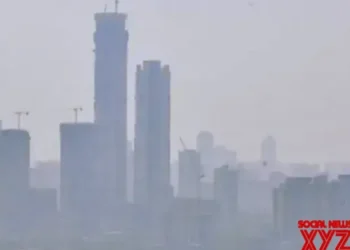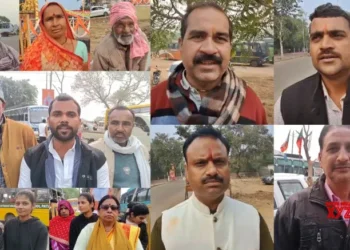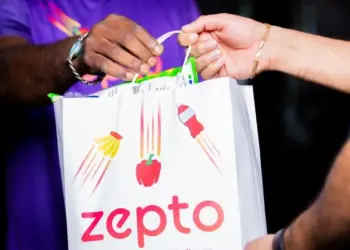Delhi, Haryana and Tamil Nadu permitted more activities from Monday as the easing of restrictions by states gained momentum following a decline in active COVID-19 cases in the country.
Karnataka will also begin the unlock process, barring in 11 districts, from Monday, with the opening of parks and industrial units with riders, besides other relaxations.
Most states are easing the coronavirus-induced curbs, which they first started imposing in mid-April, in a staggered manner, confining it to districts with low positivity rates and active cases and continuing with restrictions like the closure of schools and colleges and night curfew.
Restaurants with 50 percent capacity, weekly markets and religious places will reopen in the national capital from June 14, Delhi Chief Minister Arvind Kejriwal announced on Sunday, saying the COVID-19 situation has significantly come under control in the city.
Salons, beauty parlours and barbershops closed since the imposition of lockdown on April 19, will reopen. Markets and malls, which were earlier allowed to reopen on an odd-even basis, will now open on all days, from 10 AM to 8 PM. Only one weekly market per municipal zone per day will be allowed, he said.
Schools, colleges, educational and coaching institutes, cinema halls, multiplexes, theatres, gyms, spas, yoga institutes, swimming pools, auditoriums, banquet halls, amusement and water parks, and public parks and gardens, will continue to be closed till 5 AM on June 21, according to the Delhi Disaster Management Authority (DDMA) order issued on Sunday.
All gatherings and congregations are also prohibited as in other states. Religious places in the city will also be allowed to reopen from Monday, but visitors will not be allowed.
In neighbouring Haryana, the state government extended the lockdown till June 21, while easing several restrictions that were in place earlier including doing away with odd-even system for opening shops.
Gyms, sports complexes and stadia have now also been permitted under some conditions.
Tamil Nadu Chief Minister M K Stalin announced more relaxations in curbs in 27 districts of the state which include permission for the ubiquitous tea shops to reopen from June 14.
However, there will be no easing of curbs in 11 districts, seven in western and four in Cauvery delta regions.
Restaurants and bakeries have already been allowed to function. Salons, parks and state-run liquor outlets in 27 districts would reopen on June 14.
Places of worship and tourist locations will continue to remain closed and there would be no public or private bus services during the extended spell of lockdown.
The Jammu and Kashmir administration also announced further easing of restrictions in eight districts showing significant improvement in the COVID-19 situation.
The decision to grant relaxations in Shopian, Kulgam, Ganderbal and Bandipora in Kashmir division and Poonch, Reasi, Ramban and Doda in Jammu division was taken at a meeting which focussed on total weekly new cases (per million), positivity rate, bed occupancy, case fatality rate and vaccination coverage of the targeted population, an official order said.
The Assam government asked all its employees who have received two doses of COVID-19 vaccine to join offices from Monday even as a partial lockdown across the state will be in force.
Madhya Pradesh Chief Minister Shivraj Singh Chouhan said a decision on further relaxations, including opening of gymnasiums, will be made on the basis of suggestions before June 15, as he announced that now 40 people can participate in a wedding instead of 20 earlier.
India reported 80,834 fresh COVID-19 cases, the lowest after 71 days, while the daily positivity rate further dropped to 4.25 percent, according to the Union Health Ministry data updated on Sunday morning.
With the fresh cases, the country’s tally of cases has climbed to 2,94,39,989.
The COVID-19 death toll climbed to 3,70,384 with 3,303 fresh fatalities, the data updated at 8 AM showed.
The active cases further declined to 10,26,159 comprising 3.49 percent of the total infections, while the national COVID-19 recovery rate has improved to 95.26 percent.
Recoveries continue to outnumber daily new cases for the 31st consecutive day.
While Bihar lifted lockdown on June 9 with some restrictions like night curfew continuing, Uttar Pradesh had last Tuesday extended relaxations in curbs to all 75 districts of the state as active cases had come down the 600-mark in each of them.
The night curfew from 7 PM to 7 AM and weekend curfew (for the entire day) was continuing throughout UP.
Over the week, Maharashtra also started a five-tier unlock process based on the weekly positivity rate and occupancy of oxygen beds in districts.
The Odisha government is also likely to start the unlock process from June 17 in a phased manner The Punjab government gave relaxations including allowing shops to open till 6 pm while adopting a graded approach to reopening.
Telangana and Jharkhand have extended COVID-related lockdown-like restrictions with some relaxations.
The Nagaland government too had announced an extension of the ongoing Covid-related lockdown till June 18, but with the easing of some restrictions.
The coronavirus-induced curfew in Goa was on Sunday extended till June 21 as the positivity rate in the state stood at 14 percent, an official said.
India had reported more than 88.82 lakh coronavirus infections in May alone during the raging second wave of COVID-19, accounting for 31.67 percent of the over 2.8 crore cases reported in the country so far and making it the worst month of the pandemic.
The month of May also saw 1,17,247 fatalities due to the disease, which is around 35.63 percent of the total 3,29,100 deaths recorded so far.
The daily cases peaked on May 7 when the country registered 4,14,188 infections in a span of 24 hours, while daily deaths were the highest on May 19 with India reporting 4,529 fatalities due to COVID-19.
The active cases had peaked on May 10 at 37,45,237.
With several states taking steps towards unlocking and easing restrictions amid the decline in COVID-19 cases, Prime Minister Narendra Modi had last Monday cautioned people against any laxity and asserted that COVID-appropriate protocol is the ”most effective weapon” against an unseen adversary like coronavirus that keeps changing its form.
”In many places, relaxations are being given in corona curfew but it does not mean that coronavirus has gone away. We have to remain cautious and also have to follow COVID protocols strictly. I am confident that we will win this battle and that India will win against coronavirus,” he had said.























